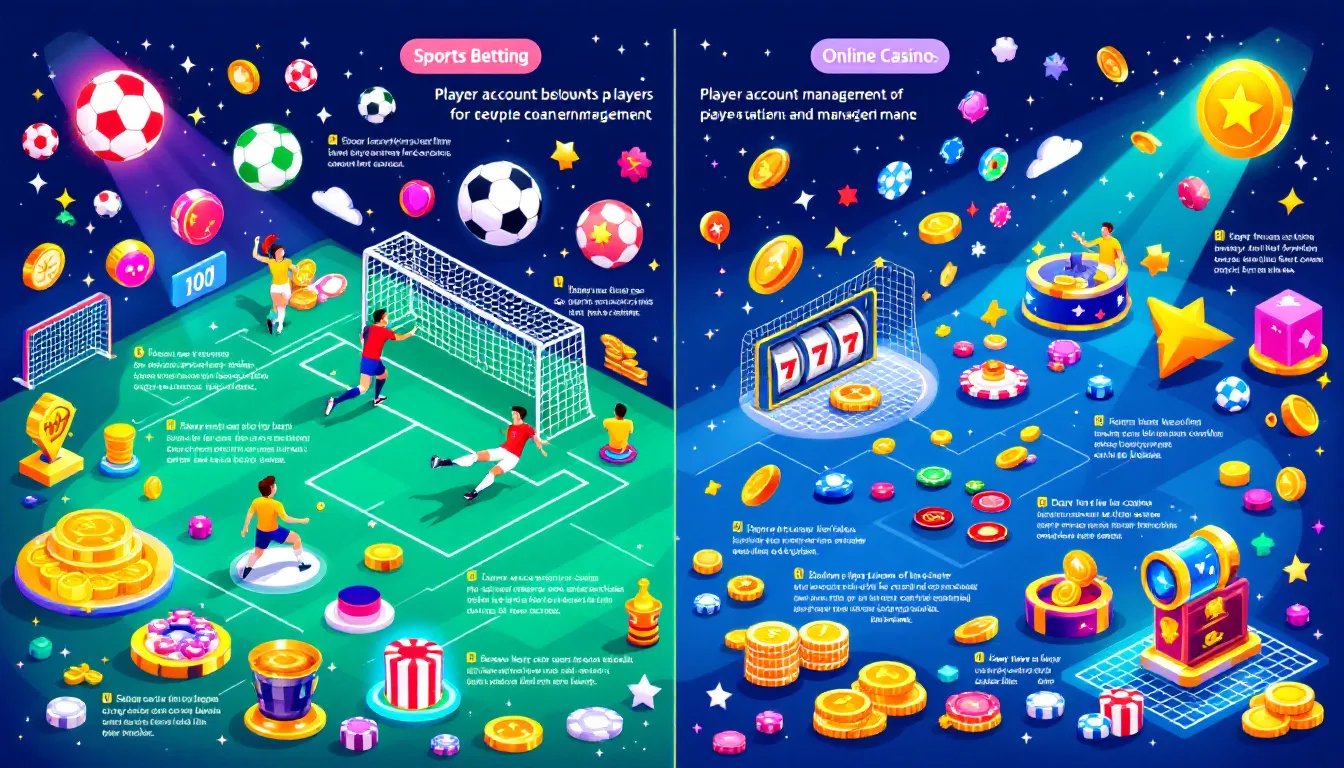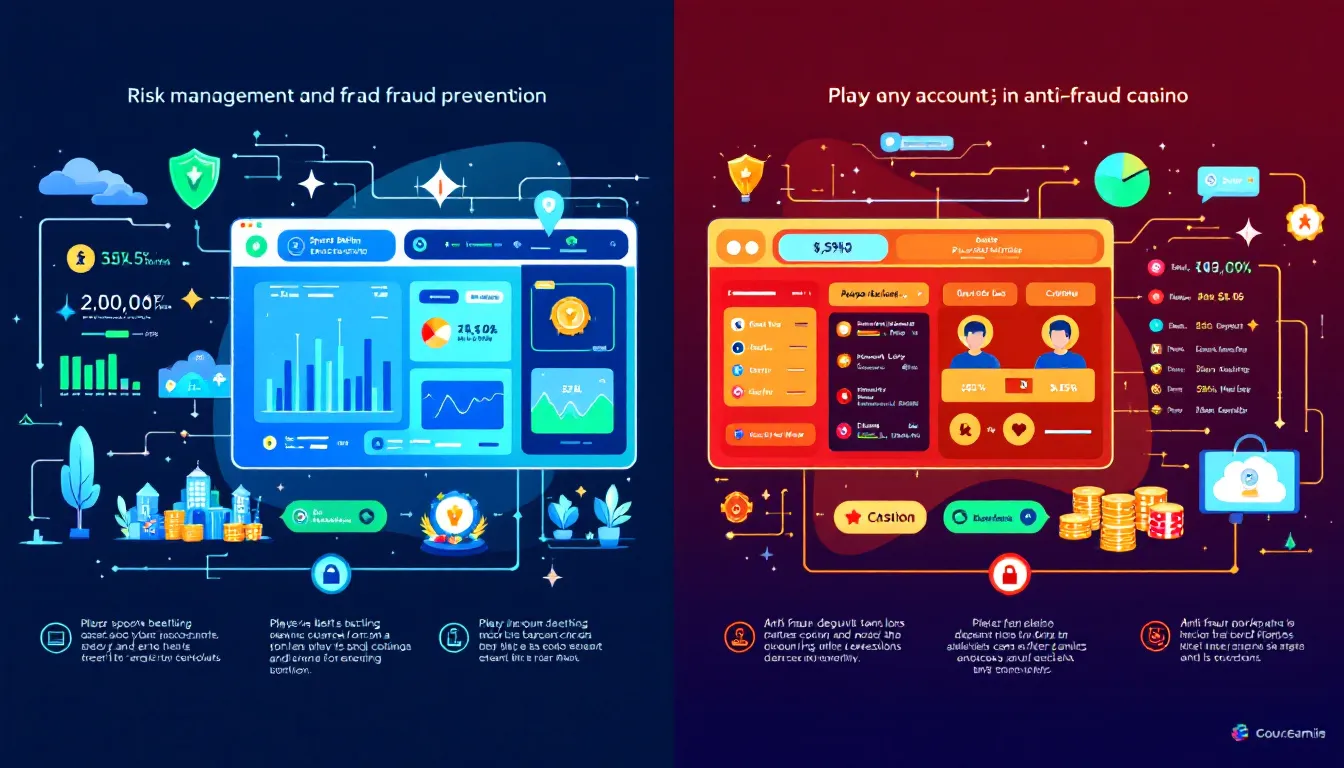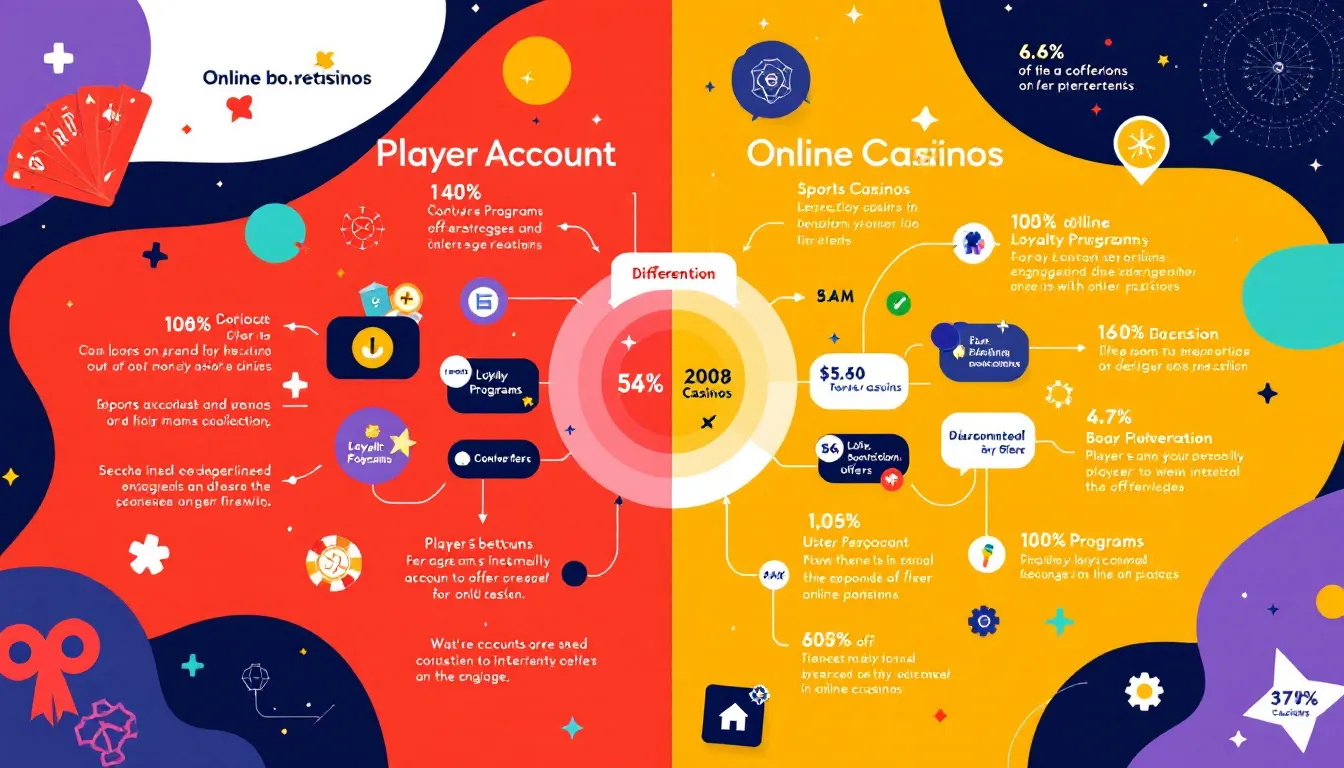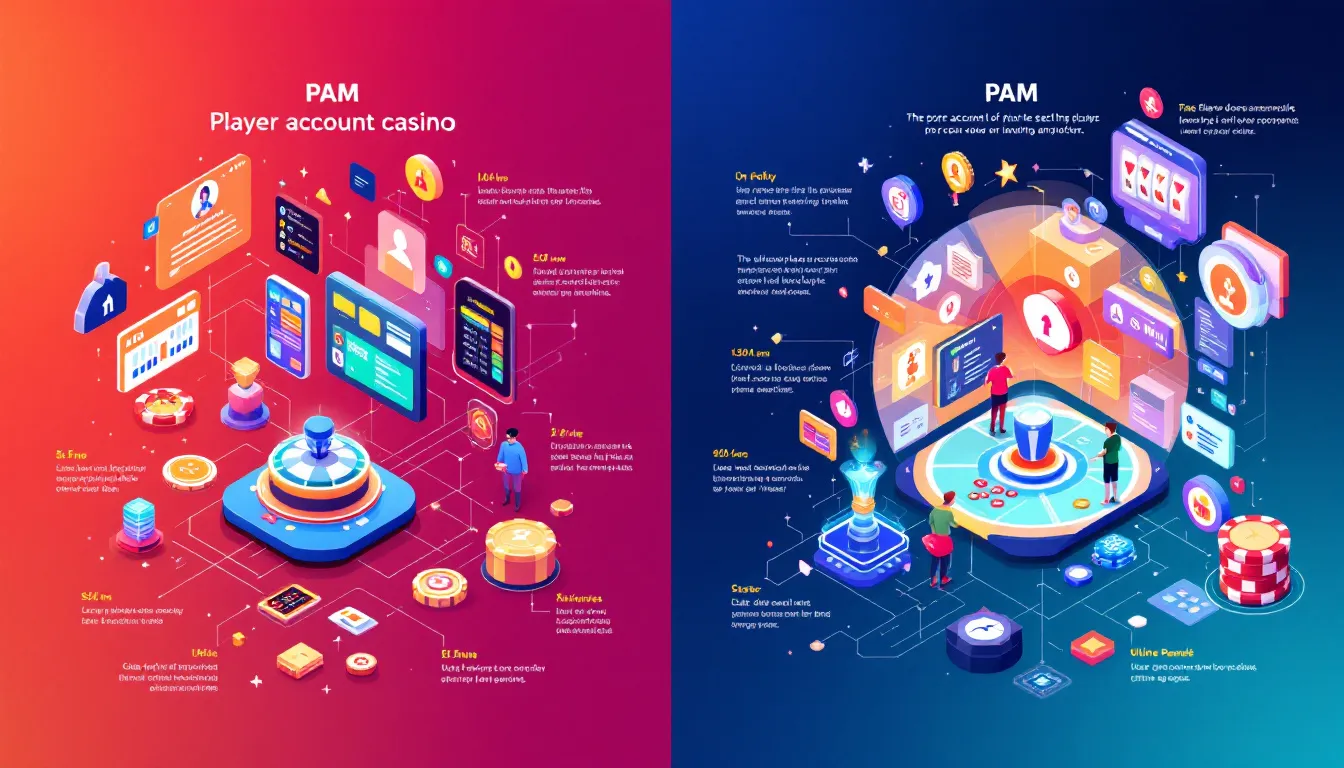PAM systems play a crucial role in both sports betting and online casinos, but they have key differences operators must know. This guide explores how these systems manage player accounts, handle transactions, and ensure compliance in each sector, highlighting the PAM in sports betting vs online casino key differences operators must know.
Key Takeaways
- PAM systems in sports betting focus on high-frequency transactions and fraud prevention, while online casinos prioritize player personalization and engagement.
- Compliance with KYC and AML regulations is essential for both sectors, ensuring fraud prevention and player protection through robust identity verification processes.
- Integrating real-time data analytics and third-party services within PAM systems enhances operational efficiency and player experience, facilitating better engagement and retention strategies.
Core Functions of PAM Systems in Sports Betting and Online Casinos
At the heart of any successful iGaming player account management operation is a robust PAM system. These systems are indispensable for managing player accounts, handling financial transactions, and ensuring compliance with regulatory standards. The core functions of PAM systems span both sports betting and online casinos, yet the implementation and focus areas can differ significantly. Additionally, iGaming PAM software plays a crucial role in enhancing these operations.
In sports betting, PAM systems are designed to accommodate:
- High-frequency transactions and rapid cash flows, crucial for live betting scenarios
- Various payment methods, ensuring secure deposits and withdrawals for players
- Fraud detection mechanisms, protecting against unauthorized activities and maintaining the integrity of the game
Online casinos, on the other hand, emphasize different experiences depending on their model—free-to-play vs. real-money online casinos—each with its own set of benefits and drawbacks.
- Personalization and player engagement
- Facilitate player onboarding through secure registration and verification processes
- Storing information on betting preferences and gameplay history to personalize player experiences. This personalization is key to retaining players and enhancing their overall gaming experience.
Player Registration and Authentication
Player registration is the gateway to engaging with any iGaming platform for existing players. In sports betting, identity verification often includes real-time checks against official databases to confirm player identities quickly. This combination of traditional and automated systems streamlines account creation and player registrations onboarding, allowing for a smoother and more efficient player acquisition process.
Online casinos typically require players to submit identification documents, such as passports or driver’s licenses, to verify their age and identity. Many gaming platforms have also implemented biometric verification methods, such as facial recognition, to enhance security during the registration process. These secure player registration and authentication processes are crucial for preventing fraud and ensuring regulatory compliance in both sports betting and online casinos, as well as in various casino games.
A robust player account management system not only manage players but also ensures that players are engaged and protected. Implementing multi-factor authentication adds an extra layer of security, making it harder for unauthorized users to access player accounts. This approach not only protects the players but also builds trust and loyalty, essential for long-term player satisfaction and retention, including player authentication. Additionally, player account management systems play a crucial role in this process.
Transaction Management and Payment Gateways
Transaction management is a critical aspect of any PAM system. Efficiently managing deposits, withdrawals, and player balances ensures smooth financial transactions, which are vital for maintaining player trust and satisfaction. Payment gateways act as intermediaries, ensuring secure processing of electronic transactions in both sports betting and online casinos.
PAM systems must integrate various payment methods to accommodate the diverse preferences of users, including:
- Credit cards
- E-wallets, such as PayPal and Skrill, which are commonly favored in the online gambling sector for their speed and security
- Cryptocurrencies, which are increasingly popular due to their low fees and the anonymity they provide
Blockchain integration is another emerging trend in PAM systems, offering improved transparency and security for transactions. Ensuring that payment processing is seamless and secure is essential for maintaining player trust and encouraging continued engagement on the platform.
Loyalty Programs and Bonuses

Loyalty programs and sign up bonuses are powerful tools for enhancing player engagement and retention. Online sportsbooks utilize automated systems to monitor player activity and reward them based on their betting habits. Simple point-based loyalty programs allow players to earn points directly tied to their betting volume, which can then be redeemed for various rewards.
VIP programs take player rewards to the next level by offering exclusive targeted promotions and dedicated customer support for high-rolling bettors. Sports betting loyalty rewards can include free bets, refunds on losses, and invitations to exclusive events. These rewards not only incentivize players to continue betting but also foster a sense of loyalty and appreciation.
For online casinos, crossover loyalty programs enhance value by:
- Allowing players to earn points redeemable in both online and physical casinos.
- Using tailored marketing campaigns based on individual gaming histories to significantly improve player loyalty, ensuring that players feel valued and recognized for their activity.
- Offering regular promotions and bonuses to create excitement and motivate players to remain engaged with the platform.
Game Preferences and Player Behavior Tracking
Understanding player behavior and preferences is crucial for tailoring experiences that resonate with individual players. Player tracking serves to monitor player activity, betting patterns, and preferences, which is essential for creating personalized experiences. In sports betting, the higher frequency of bets placed requires a different approach to behavior tracking compared to casino players.
Casino players exhibit different engagement patterns, leading to varied data collection approaches in player management systems. Monitoring user activity in PAM systems focuses on behavioral analytics, risk detection, and personalization. Demographic factors like age and gender have less influence on exclusion rates for problem gambling compared to behavioral indicators in both player types.
AI technologies are enhancing PAM systems’ ability to analyze player behavior and deliver personalized gaming experiences. Built-in tools for player behavior monitoring, churn prediction, and marketing optimization are available within PAM systems to improve player engagement and player interactions. Incorporating gamification elements into platforms can also significantly increase player engagement and make experiences more interactive.
KYC & AML Compliance Requirements
Compliance with KYC (Know Your Customer) and AML (Anti-Money Laundering) regulations is a cornerstone of both sports betting and online casinos. PAM systems provide real-time monitoring to ensure compliance with local laws and regulations during sports betting and casino operations. These regulations are essential for preventing fraud, identity theft, and other forms of financial crime.
Robust KYC processes are essential for preventing fraud. They also play a key role in retaining players in PAM systems while ensuring a smooth user experience. Modern PAM platforms offer built-in features to ensure compliance with KYC and AML regulations, incorporating advanced identity verification methods and ongoing monitoring of player behavior to identify suspicious activities.
Risk Management and Fraud Prevention

Risk management and fraud prevention are critical for maintaining the integrity of sports betting and online casino operations. Sports betting operators face specific KYC demands due to the nature of their transactions, often involving rapid cash flows and higher risks of fraud. Behavioral tracking data suggests that using mobile devices for sports betting correlates with a higher risk of problem gambling than desktop use.
Online casinos must ensure that players are aware of effective casino bankroll management strategies to encourage responsible gambling:
- Implement detailed customer due diligence processes tailored for high-risk players, especially during significant transactions.
- Address the increase in organized fraudulent activities caused by sophisticated fraud groups within the gaming industry.
- Use PAM systems with advanced security measures to protect against fraud, ensuring a safe and secure gaming environment.
Real-Time Data and Analytics
Real-time data and analytics play a pivotal role in improving business performance and player retention. Analytics and reporting functionalities within PAM systems aid operators in assessing player data activity and overall data management performance issues, including data accuracy. Effective real-time data insights can significantly enhance customer retention and transform casual players into dedicated fans.
Real-time monitoring technologies allow gaming operators to dynamically assess risks and adjust their strategies during live betting events. Advanced analytics features, such as cohort analysis, help game providers understand different player demographics and their behaviors, informing risk management strategies, pricing strategies, and optimizing gameplay accordingly through automated alerts.
Integration with Third-Party Services
Integrating PAM systems with third-party services allows for tailored solutions and seamless integration management of online betting operations. A well-integrated PAM solution can provide pragmatic solutions to:
- Facilitate quick access to diverse sports and casino betting options
- Enhance player engagement
- Improve operational efficiency through effective integration with third-party tools
PAM systems can utilize APIs to seamlessly connect with various services such as payment processors and CRMs. Customization opportunities in pam software systems are significantly expanded by integrating with specialized third-party services and the pam platform, including pam solutions. These integrations provide valuable analytics, customer support functions, and enhance the overall player experience.
Regulatory Compliance and Licensing
Regulatory compliance for online betting includes adhering to both state and federal gambling laws. Licensing requirements can differ significantly from state to state, impacting the operational readiness of online betting platforms.
Operators must collaborate with licensed land-based casinos in many jurisdictions to legally offer online betting services in regulated markets. Regular audits and reporting to regulatory bodies are essential for maintaining operational licenses in the gambling industry and promoting responsible gambling. Noncompliance with gambling regulations can lead to severe penalties, including fines and the revocation of licenses.
Multi-Jurisdiction Operations
Operating in multiple jurisdictions presents a complex web of regulatory requirements and operational challenges. A scalable and compliant PAM system enables an iGaming operator to expand globally. Scalability is important for PAM systems in emerging markets as it ensures performance and adaptability as operators expand.
The ability of PAM systems to support multiple languages and currencies is crucial for serving diverse markets. Scalability is a key feature of PAM systems that supports high traffic handling, ensuring that operators can manage the massive volume of transactions and regulatory complexities that arise with geographical expansion.
Player Engagement and Retention Strategies

The player engagement and retention are essential for the long-term success of iGaming operations. Player account management PAM systems enable operators to oversee the entire player lifecycle. This includes stages such as acquisition, onboarding, retention, and reactivation. Integrating marketing tools with PAM systems allows for automating email campaigns and SMS notifications, improving promotional management and customer relationship management.
AI is utilized in PAM systems to personalize experiences based on player behavior, aiding in building long-term relationships. Monitoring player behavior to promote responsible gaming and identify potential gambling issues is also crucial for ensuring player satisfaction and loyalty.
Security Features and Player Protection
Ensuring robust security features and player protection is paramount in the online gaming environment. Important measures include key features such as:
- Using secure servers
- Restricting access controls
- Implementing strong cybersecurity measures to combat risks such as identity theft and account takeovers.
Two-factor authentication (2FA) enhances security by requiring users to provide two forms of identification before accessing their accounts. Regular updates and patches to gaming software are essential to address security vulnerabilities and protect against emerging threats.
Educating players about phishing attacks and safe online practices is also vital for safeguarding personal and financial information against cyber threats.
Future Trends in PAM for Sports Betting and Online Casinos

As the iGaming industry continues to evolve, future trends in PAM systems are set to revolutionize operations. The integration of AI and machine learning into PAM systems is expected to increase their intelligence and complexity, enhancing operational efficiency. Mobile-first optimization is a critical feature for modern PAM systems, ensuring that operators can deliver seamless gaming experiences on mobile devices.
Blockchain, artificial intelligence, and real-time data analytics are shaping how operators engage players and optimize their operations. Future PAM systems for iGaming operators should be built on AI-native, cloud-first infrastructure to support advanced functionalities. These innovations will play a crucial role in providing seamless, personalized, and secure gaming experiences.
Summary
Understanding the differences between PAM systems in sports betting and online casinos is essential for operators to optimize their strategies and ensure robust player account management. From player registration and transaction management to loyalty programs and regulatory compliance, each aspect requires a tailored approach to meet the unique demands of both sectors.
As the iGaming industry continues to grow, Prometteur’s expertise suggests that staying ahead of future trends and leveraging advanced technologies will be crucial for operators. By implementing effective PAM solutions, operators can enhance player experiences, ensure regulatory compliance, and drive long-term success.
Frequently Asked Questions
What are the core functions of PAM systems in sports betting and online casinos?
PAM systems in sports betting and online casinos primarily manage player accounts, handle financial transactions, ensure regulatory compliance, and personalize player experiences. These functions are crucial for enhancing user satisfaction and maintaining operational integrity.
How do player registration and authentication differ between sports betting and online casinos?
Player registration and authentication in sports betting typically involve real-time checks against official databases, whereas online casinos often require identification documents and may utilize biometric verification methods. This distinction highlights the varying levels of security and verification needed in different gambling environments.
What payment methods do PAM systems integrate with?
PAM systems integrate with a wide range of payment methods, such as credit cards, e-wallets, and cryptocurrencies, to meet diverse user preferences. This flexibility ensures a seamless payment experience for all users.
How do loyalty programs and bonuses differ between sports betting and online casinos?
Loyalty programs in sports betting primarily focus on free bets and loss refunds, whereas online casinos typically provide rewards that can be redeemed in both digital and physical locations. This distinction highlights the tailored approaches each platform uses to engage their clientele.
What future trends are expected in PAM systems for iGaming operators?
Future PAM systems for iGaming operators are expected to integrate AI and machine learning, focus on mobile-first optimization, utilize blockchain technology, and employ real-time data analytics to improve efficiency and enhance player engagement.